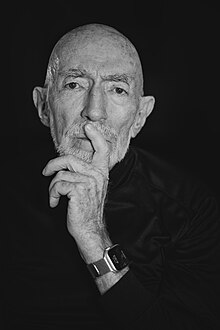
Back كيب ثورن Arabic كيب ثورن ARZ کیپ تورن AZB Кіп Торн Byelorussian Кип Торн Bulgarian কিপ থর্ন Bengali/Bangla Kip Thorne Breton Kip Thorne BS Kip Thorne Catalan Kip Thorne Czech
Kip Stephen Thorne (born June 1, 1940) is an American theoretical physicist and writer known for his contributions in gravitational physics and astrophysics. Along with Rainer Weiss and Barry C. Barish, he was awarded the 2017 Nobel Prize in Physics for his contributions to the LIGO detector and the observation of gravitational waves.[4][5][6][7]
A longtime friend and colleague of Stephen Hawking and Carl Sagan, he was the Richard P. Feynman Professor of Theoretical Physics at the California Institute of Technology (Caltech) until 2009[8] and speaks of the astrophysical implications of the general theory of relativity. He continues to do scientific research and scientific consulting, a notable example of which was for the Christopher Nolan film Interstellar.[9][10]
- ^ "einstein medal". Einstein-bern.ch. Retrieved December 7, 2014.
- ^ "Kip Stephen Thorne". Mathematics Genealogy Project. North Dakota State University. Retrieved September 6, 2016.
- ^ "Kip Stephen Thorne". AstroGen. American Astronomical Society. Retrieved October 1, 2024.
- ^ "The Nobel Prize in Physics 2017". The Nobel Foundation. October 3, 2017. Retrieved October 3, 2017.
- ^ Rincon, Paul; Amos, Jonathan (October 3, 2017). "Einstein's waves win Nobel Prize". BBC News. Retrieved October 3, 2017.
- ^ Overbye, Dennis (October 3, 2017). "2017 Nobel Prize in Physics Awarded to LIGO Black Hole Researchers". The New York Times. Retrieved October 3, 2017.
- ^ Kaiser, David (October 3, 2017). "Learning from Gravitational Waves". The New York Times. Retrieved October 3, 2017.
- ^ "Kip S. Thorne: Biographical Sketch". www.its.caltech.edu. Retrieved May 8, 2020.
- ^ Kevin P. Sullivan (December 16, 2013). "Christopher Nolan's 'Interstellar' Trailer: Watch Now". MTV. Archived from the original on November 23, 2014. Retrieved October 30, 2014.
- ^ "Watch Exclusive: The Science of Interstellar - WIRED - WIRED Video - CNE". WIRED Videos. Archived from the original on December 5, 2014. Retrieved December 7, 2014.
